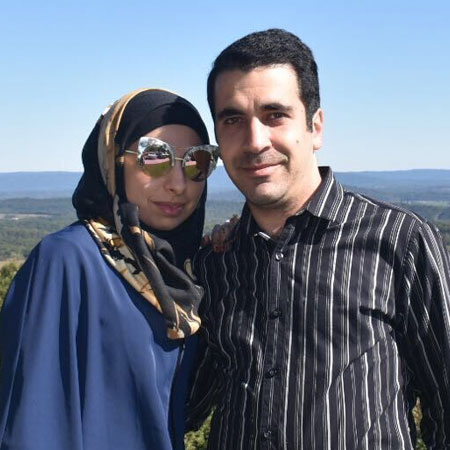Mohamad Mashta

2017 came in phases -- shock, fear, hope, and waiting. When Donald Trump first announced his ban in January, I couldn’t believe it. My wife and I were in the visa process for her to join me in Ohio. My wife and I were both born in Syria. At the time, she was living in Sudan, having left Syria for safety because of the civil war.
I told myself that the ban was temporary and would only last 90 days. But at the same time, my vision and understanding of my life began to shift -- for the first time since I immigrated, I was no longer sure that the U.S. was my home. Each day following the ban’s announcement, it felt like I was being sent a message: People like me were no longer welcome here. At my work, as an engineer in an automobile manufacturing plant, I felt like I had to defend my religion, my nationality, and my right to the life that I built in this country, one that I wanted to share with my wife. I spent my days in a fog, trying to somehow show to the world that I was not bad, that I did not deserve to be banned. My night were filled with worry that my wife and I would not reunite.
The second phase began when my wife interviewed for her visa and was placed in administrative processing. We had no idea when it might end--and most important, whether it would end, and we could get the visa, while we were still protected by the courts' injunctions blocking the ban. It felt like someone wanted to keep us apart. Waiting, with neither approval or denial, was so difficult. We started to think about moving and starting a life in a new country.
After months, my wife received a call on October, 11 from the U.S. embassy. By this time, President Trump had issued the third Muslim ban. It could stop her from ever coming to the United States, but it had not yet gone into effect. The embassy told my wife to bring her passport so that she could get her visa, using the exact words to come “before the proclamation goes into effect on October 18.” Her visa was stamped on October 16 and I booked her flight out of Sudan on the very same day. My wife went from the embassy straight to the airport.
On October 17, my parents, my sister, and I met my wife at the airport. We were so happy. In that moment, I felt that living under uncertainty of the ban had been a terrible experience, but not one that broke my family. Along the way, each court victory kept us afloat. They made me have faith in the First Amendment, that rights in America were stable and solid.
Reuniting with my wife was the light in a dark year. Still, we are not sure what the future will bring. We still have family affected by the third ban, like my wife’s father who cannot come visit us. Because I know how it feels to not know when you will see your loved ones next, I am committed to sharing my story.